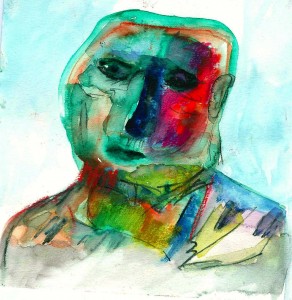More about getting and staying fat
Over two thirds of Americans are overweight and 1/3 are obese. We have not been successful in stemming the tide of fat around our middles. We need help in the form of reliable scientific knowledge that can be helpful for us to slim down. Mindsinplay.com includes several postings addressing overeating, food craving, interventions to limit weight gain and to lose weight including fiction stories and synopsis of scientific reports. The recently published study, described below, has prompted us to organize and integrate our obesity, craving, postings. We will do that shortly. In the meantime……
Sofie Lemmens and colleagues at Maastricht University in Holland just published a particularly interesting paper about eating behavior in the March issue of The Journal of Nutrition. The paper describes the results of a study in which subjects ate one ‘standardized’ meal (typically Dutch dinner) under 2 different conditions. One group of subjects consumed their meal in a restaurant setting in which subjects ate over a two hour period. The other group ate more quickly, in a half hour, and did so in a setting that was like their eat in kitchen at home. Two hours after the beginning of the meal all subjects were offered all kinds of traditional Dutch snacks such as apple cake and chocolate covered marshmallows.
Blood was drawn before, during, and after the meal to measure levels of an appetite signaling hormone (glucagon-like peptide 1 (GLP-1) as well as peptide tyrosine-tyrosine (PPY). In addition subjects reported how sated and or hungry they were. Not unexpectedly the satiety communicating hormones increased more gradually in the subjects that consumed their meal over a period of 2 hours rather than a half hour. In addition just before being offered snacks the leisurely diner group rated said (rated) their satiety higher and their hunger lower. The take away message from the study is that neither the ratings of subjects nor their satiety hormone levels affected how much snacking occurred. The cues in the environment appear to be more important in determining how much snacking occurred and not biological cues. Get the tempting fattening foods out of the house if you are trying to lose weight. Seems simple, and we sort of knew that but this study is a reminder to emphasize the value of diminishing the cues around us that stimulate the behaviors we want to control.
Cute study. It may have important implications for all kinds of craving. If you are an alcoholic don’t visit bars and if you are addicted to some other drug avoid situations (and people) that remind you of what it is like when you use an addicting drug.
